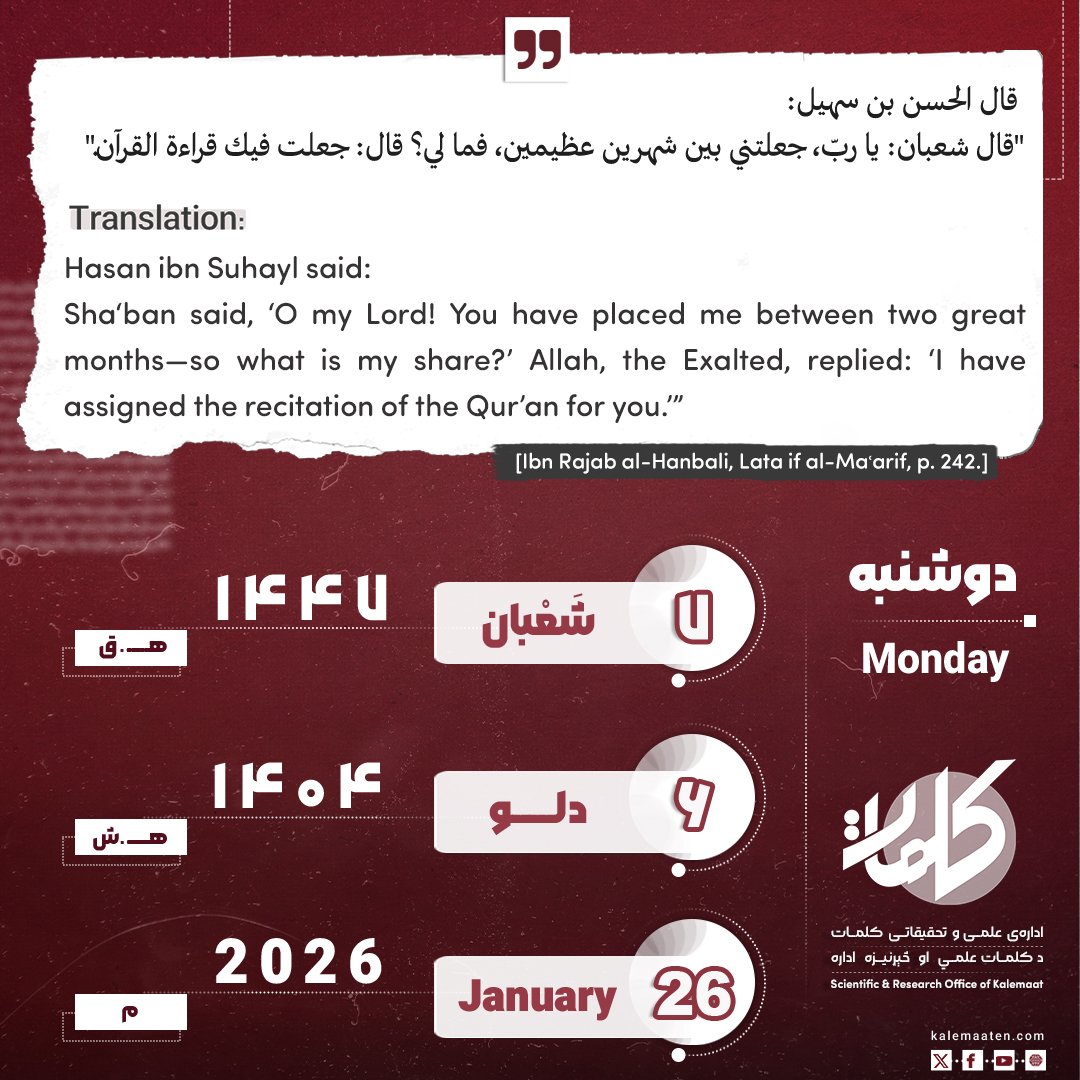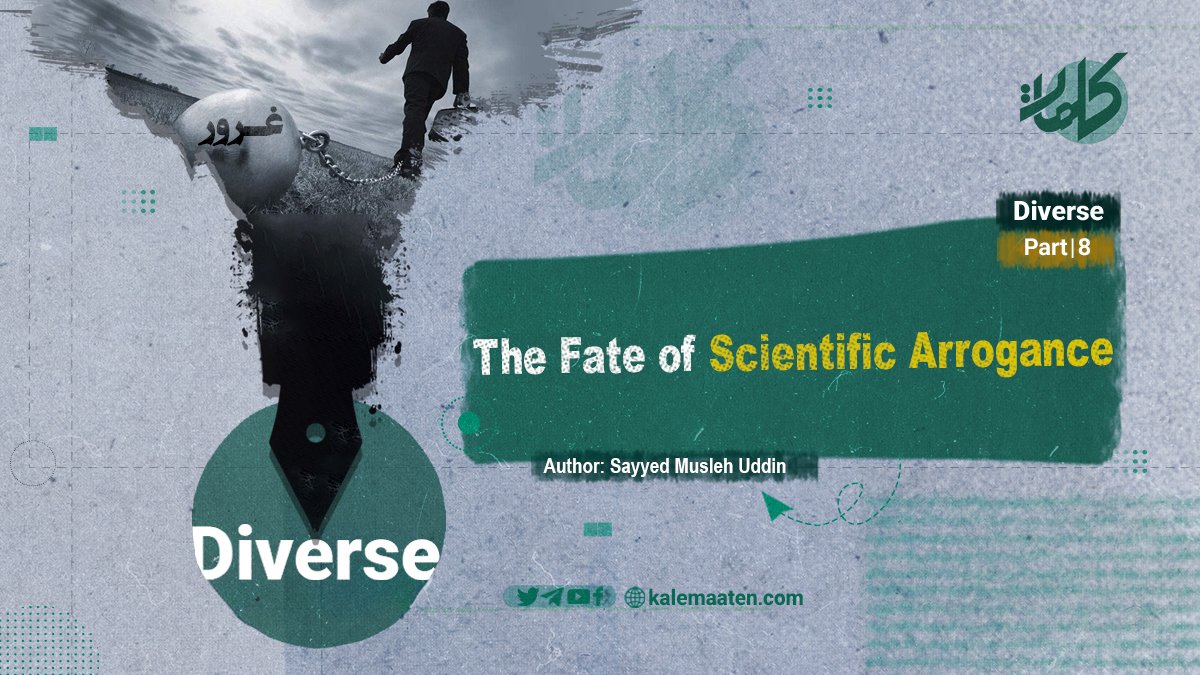Author: Sayyed Musleh Uddin
The Fate of Scientific Arrogance (Part Eight)
True Scholars:
It is clear that true scholars walk the path of servitude to Allah, for they believe that Allah guides to His straight path anyone whom He deems worthy of guidance. Therefore, from the Qur’anic perspective, the concept of knowledge is aligned with a person’s faith: the more faith one has, the more knowledge they are granted. In other words, every true believer is a scholar, and every true scholar is a believer.
Genuine scholars are those who bear witness to the divinity of Allah and recognize Him as the only true deity. Allah (SWT) says: “لَكِنِ الرَّاسِخُونَ فِي الْعِلْمِ مِنْهُمْ وَالْمُؤْمِنُونَ يُؤْمِنُونَ بِمَا أُنزِلَ إِلَيْكَ وَمَا أُنزِلَ مِن قَبْلِكَ وَالْمُقِيمِينَ الصَّلَاةَ وَالْمُؤْتُونَ الزَّكَاةَ وَالْمُؤْمِنُونَ بِاللَّهِ وَالْيَوْمِ الْآخِرِ أُوْلَئِكَ سَنُؤْتِيهِمْ أَجْرًا عَظِيمًا” Translation: “But those firm in knowledge among them and the believers believe in what has been revealed to you and what was revealed before you, and [they] establish prayer and give zakat and believe in Allah and the Last Day — We will give them a great reward.” [1]
This verse shows that from the Qur’an’s perspective, true scholars are those who walk the path of servitude to Allah. Otherwise, the title of “scholar” becomes merely symbolic and unsubstantiated. Modern sciences such as chemistry, physics, mathematics, biology, etc., which are studied in schools and universities today and should rather be referred to as “techniques” (funun), are only aids for reaching true knowledge and should not be considered the essence of knowledge itself.
Unfortunately, we often see people today who, after reading a few books and obtaining high academic degrees, become intoxicated with pride and assume themselves to be scholars! They imagine that titles such as “Professor,” “Doctor,” “Scholar,” “Cleric,” or “Shaykh” reflect their superior knowledge and scholarly rank. However, in the language of the Qur’an, if such individuals have not developed their faith and servitude to Allah proportionately, the robe of knowledge does not befit them — and in the sight of the Lord of all worlds, they are nothing more than ignorant. Outward sciences such as jurisprudence, exegesis, principles of religion, Arabic grammar, rhetoric, lexicography, theology, etc., are only beneficial when they facilitate the path of servitude to Allah and increase a person’s awe and humility before Him. Is it not the case that Allah referred to the polytheists of the pre-Islamic Arabs as ignorant and dead — even though they were masters of all the Arabic sciences of their time and could easily comprehend divine verses and deeply understand them? Yet because they did not act upon their knowledge and adopted the wrong stance toward Allah, He labeled them as ignorant and unknowing. [2]
The Importance of Knowledge:
Hasan al-Basri (MABH) said: “If there were no scholars, people would have the characteristics of beasts.” [3]
Ibn al-Qayyim (MABH) said: “Anyone who acts without knowledge is like a traveler without a guide. It is obvious that a guide ensures a traveler’s safety. If a person reaches safety without knowledge, it is a rare and unfavorable occurrence, and from the perspective of the wise, it is blameworthy.”
He also said: “Nothing is more pleasing, delightful, or nourishing to the heart and soul than loving the Creator, remembering Him constantly, and striving to earn His pleasure. This is the essence of perfection and ultimate happiness — beyond which there is no higher goal. And it cannot be attained except through the gateway of knowledge, for love is dependent on awareness and perception. The more one knows Allah, the more one will love Him. And the more one knows the world and its wealth-hoarders, the more one will turn away from them. Thus, knowledge is the key that opens the gateway to understanding the secret of creation and divine dominion.”
Ibn al-Qayyim further stated: “Even if knowledge had no benefit other than yielding certainty (yaqin) — which is the most vital element for the life of the heart — and through which peace, goodness, productivity, and all other essentials of life emerge, it would suffice. That is why Allah praised scholars in the Qur’an and extolled them in His words: ‘وَبِالْآخِرَةِ هُمْ يُوقِنُونَ’ — ‘And in the Hereafter, they have certainty.’ [4] And He rebuked those who lacked certainty: ‘أَنَّ النَّاسَ كَانُوا بِآيَاتِنَا لَا يُوقِنُونَ’ — ‘Indeed, the people were not certain about Our signs.’ [5]
Some early scholars said: “The best gift Allah grants to a person is reason, and the worst affliction is ignorance.”
Abu Muslim al-Khawlani said: “The scholars on earth are like stars in the sky. Just as people are guided by the stars’ light — and if their light is obscured, they become lost — likewise, people are guided by scholars. If scholars are absent, people are left in confusion and misguidance.”
Abu al-Aswad al-Duʾali said: “Nothing is more noble than knowledge. Kings rule over people, and scholars rule over kings.”
Wahb said: “Knowledge brings the following benefits:
– Nobility, even if its possessor is of low status.
– Honor, even if its possessor is humiliated.
– Closeness, even if he is far.
– Wealth, even if he is poor.
– Dignity and composure, even if he lacks them.” [6]
Continues…
Previous Part/ Next Part
[1] – Surah An-Nisa, Verse: 162.
[2] – Science and Knowledge, p. 15.
[3] – Ibid., p. 89.
[4] – Surah Al-Baqarah, Verse: 4.
[5] – Surah An-Naml, Verse: 82.
[6] – Science and Knowledge, p. 24.



